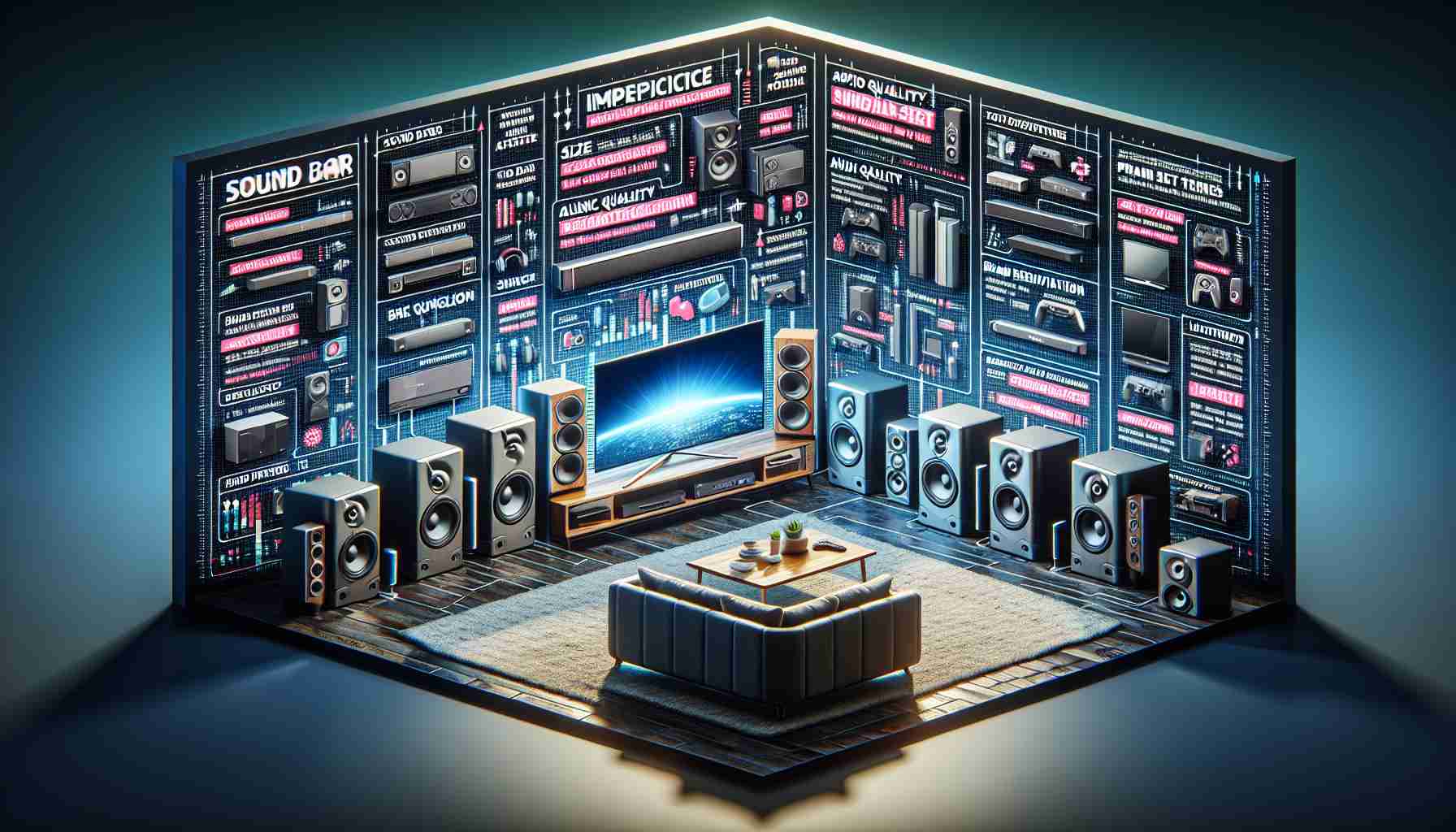Exploring Soundbar Options for Every Budget
Discovering the ideal soundbar for your entertainment setup involves considering various factors beyond just price. Soundbars are available at a wide range of price points, starting from budget-friendly options at $100 and scaling up from there. As you evaluate soundbars, it’s essential to weigh the features they offer in comparison to their price tags. Keep in mind that investing in an AV receiver and speakers might be a more valuable choice if the soundbar cost exceeds $500.
Seamless Streaming Capabilities
From basic Bluetooth connectivity to advanced streaming technologies like Spotify Connect and Apple AirPlay 2, the versatility of streaming options plays a crucial role in enhancing the soundbar experience. The more streaming technologies a soundbar supports, the more flexibility you have in enjoying your favorite music and audio content.
Immersive Audio Features to Enhance Your Setup
While Dolby Atmos is a sought-after feature in higher-priced soundbars, it’s essential to delve deeper into the audio capabilities that maximize spatial sound quality. Consider whether the soundbar incorporates dedicated height speakers or simulated Atmos to elevate your listening experience.
Connection Convenience with HDMI Inputs
A crucial consideration is the number of HDMI inputs a soundbar offers, ensuring seamless connectivity with various devices such as gaming consoles, streaming devices, and Blu-ray players. While most modern soundbars provide multiple HDMI inputs, there are exceptions like the Sonos Ray, emphasizing simplicity and compatibility with older TV models.
Optimizing Audio Performance with Subwoofers and Surround Speakers
To achieve a cinematic surround sound experience, opt for a soundbar and subwoofer combination suitable for a spacious living room setup. While single-bar systems work well for compact spaces, systems with wireless subwoofers and wired surround speakers, like the Vizio Elevate, deliver an immersive audio performance perfect for home theaters.
Additional Facts and Considerations:
– Soundbar Size and Design: The physical size and aesthetic design of a soundbar can also impact its suitability for your entertainment setup. Larger soundbars may provide more powerful sound but could be challenging to fit in smaller spaces. Also, consider whether the soundbar design complements your existing decor.
– Voice Control and Smart Home Integration: Some soundbars come equipped with voice control features like Amazon Alexa or Google Assistant integration, allowing for hands-free operation and seamless integration into a smart home ecosystem.
– Room Acoustics and Layout: The layout and acoustics of your room can significantly affect the sound quality produced by a soundbar. Consider factors like room size, furniture placement, and wall materials when selecting a soundbar to ensure optimal audio performance.
– Brand Reputation and Customer Support: Researching the reputation of soundbar brands and their customer support services can give insight into the quality and reliability of the product. Look for reviews and ratings from other users to gauge the overall satisfaction with the soundbar you are considering.
– Future-Proofing Features: When choosing a soundbar, consider whether it offers future-proofing features such as firmware updates, compatibility with evolving audio formats, and connectivity standards to ensure long-term usability and compatibility with upcoming technologies.
Key Questions to Ask:
1. What audio formats does the soundbar support, and how does it enhance the listening experience?
2. Does the soundbar come with a dedicated subwoofer, and is it wireless or wired?
3. What connectivity options does the soundbar offer besides HDMI inputs, such as optical, USB, or Wi-Fi?
4. Is the soundbar compatible with my existing TV and audio setup, including devices like gaming consoles and streaming devices?
5. Are there any additional accessories or components needed to optimize the soundbar performance in my home entertainment system?
Advantages and Disadvantages:
– Advantages: Soundbars provide a space-saving audio solution compared to traditional speaker setups, enhancing TV audio quality without the need for complex wiring. They are often easier to install and offer a more streamlined look for your entertainment area.
– Disadvantages: While soundbars can improve TV audio, some models may lack the depth and immersive quality of a full home theater system with separate speakers. High-end soundbars can also be expensive, and cheaper options may compromise on audio quality or features.
For further soundbar recommendations and reviews, you may visit CNET for in-depth analysis and comparisons of various soundbar models across different price ranges and features.



